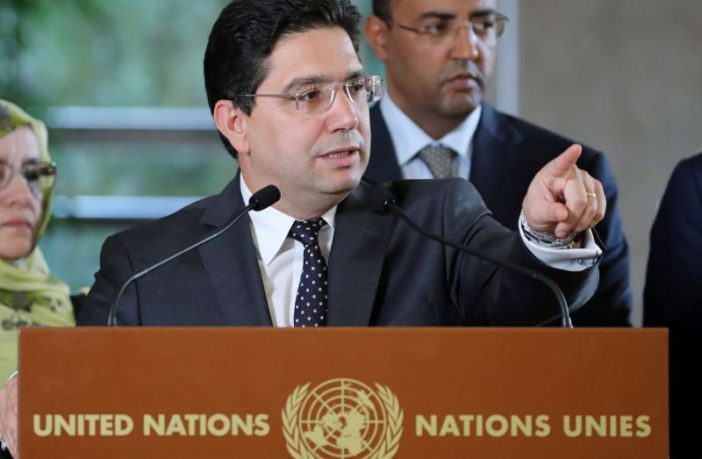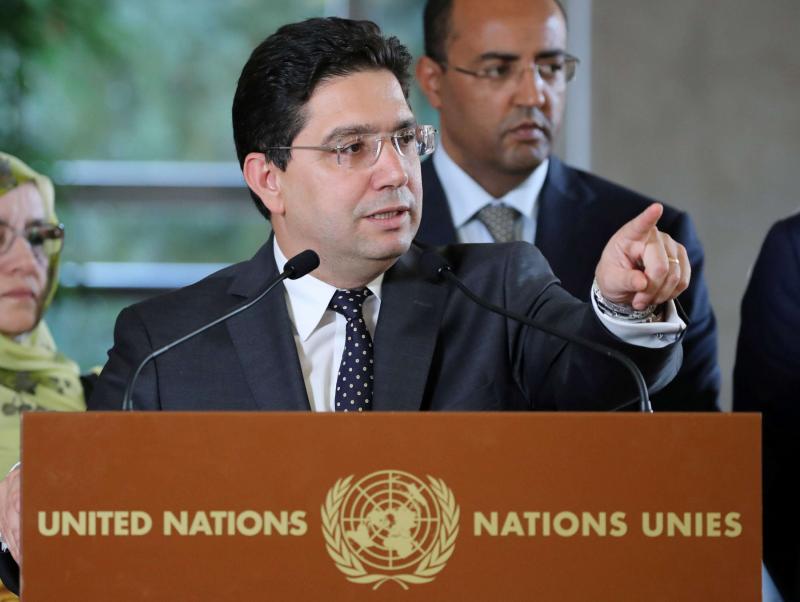The Arab Weekly
By Saad Guerraoui
The bill requires that funds appropriated under Title III for Morocco “shall be made available for assistance for Western Sahara.”
CASABLANCA – Morocco welcomed US legislation that makes funds allocated to Morocco available for assistance in Western Sahara.
The bill, part of an emergency spending measure signed February 15 by US President Donald Trump, requires that funds appropriated under Title III for Morocco “shall be made available for assistance for Western Sahara.”
The Moroccan Foreign Ministry welcomed the bill as reinforcement of US policy to back a negotiated solution to the dispute over the Western Sahara region based on Morocco’s proposed autonomy plan.
Morocco annexed Western Sahara in 1975 and maintains it is an integral part of the country. The Algeria-backed Polisario Front began an armed conflict with Morocco for an independent state that lasted until the United Nations brokered a ceasefire in 1991.
Rabat has proposed a form of autonomy under Moroccan sovereignty for the territory. The proposal was rejected by the Polisario Front, which insists on the right of the Sahrawi people to self-determination in a UN-monitored vote.
Fouad Yazourh, Moroccan director-general of Bilateral Relations and Regional Affairs, told Moroccan news channel MediTV that legitimacy returned despite lobbying campaigns by supporters of the Polisario Front, in allusion to Algeria.
“All these countries (the United States and EU countries) know that they can only deal with countries that have credible and stable institutions in the region. Morocco, as a key player in both North Africa and Africa, can only be dealt with seriously,” said Yazourh.
Ali Bahaijoub, editor of North-South News in London, said the Moroccan subsection in the bill was a new dimension added to the favourable position taken by the US administration regarding the autonomy plan.
“Washington believes it is time to find a solution to this everlasting issue that has dragged on for over four decades,” said Bahaijoub.
Thomas Hill, an expert in the Middle East and North Africa region at the US Institute for Peace think-tank, told Morocco’s official news agency MAP that the US move was recognition that development programmes in the Sahara region must be executed through and with the permission of the Moroccan government.
“Morocco is among the strongest allies of the US in Africa, North Africa and across the Middle East region,” said Hill. “Morocco’s stability is an essential asset for the US and the European allied countries when they face the problems of migration, cross-border crime, trafficking of all kinds, as well as instability in the Sahel region.”
The US measure was enacted after the adoption by the European Union of agriculture and fisheries agreements that cover all of Morocco, including the disputed territory.
“We are witnessing homogeneity between legislative and executive powers at the European Union in voting for the agriculture and fisheries agreement with Morocco,” said Yazourh.
“This is a clear signal that the EU is with Morocco and looks forward to a positive move from the Algerian government that holds the trump card for any future settlement,” said Bahaijoub.
Polisario Front Deputy Minister for Europe Mohamed Sidati denounced the EU-Morocco fisheries deal, saying that “such agreements constitute operations of robbery and the plundering of the wealth of occupied Western Sahara.”
However, representatives of southern provinces insist that thousands of fishermen and farmers and their families are financially benefiting from such agreements.
A European Commission report in September 2017 stated that an assessment of the effects of the socio-economic benefits of such support showed improvement in working conditions for tens of thousands of fishermen and farmers, including in the Sahara region.
The US bill also calls on the administration to submit, after consultation with the UN refugees commission and the World Food Programme, a report to Congress on measures taken to strengthen the monitoring of delivery of humanitarian aid to refugees in the Polisario-run refugee camps near Tindouf.
An estimated 100,000-200,000 refugees live in dire conditions in camps near Tindouf in south-western Algeria.
Moroccan news website Yabiladi reported in January that a family from a refugee camp in Tindouf had been sitting in front of the UN office in Mijek to protest “unfair” distribution of aid in the camps.
Morocco and the Polisario Front, along with Algeria and Mauritania, attended UN-led talks in December in Geneva to work towards a peaceful solution to the Western Sahara conflict.
UN Western Sahara Envoy Horst Kohler told the UN Security Council that he planned separate talks with the four parties before inviting them to a roundtable in March.
Written By Saad Guerraoui
Saad Guerraoui is a regular contributor to The Arab Weekly on Maghreb issues.








